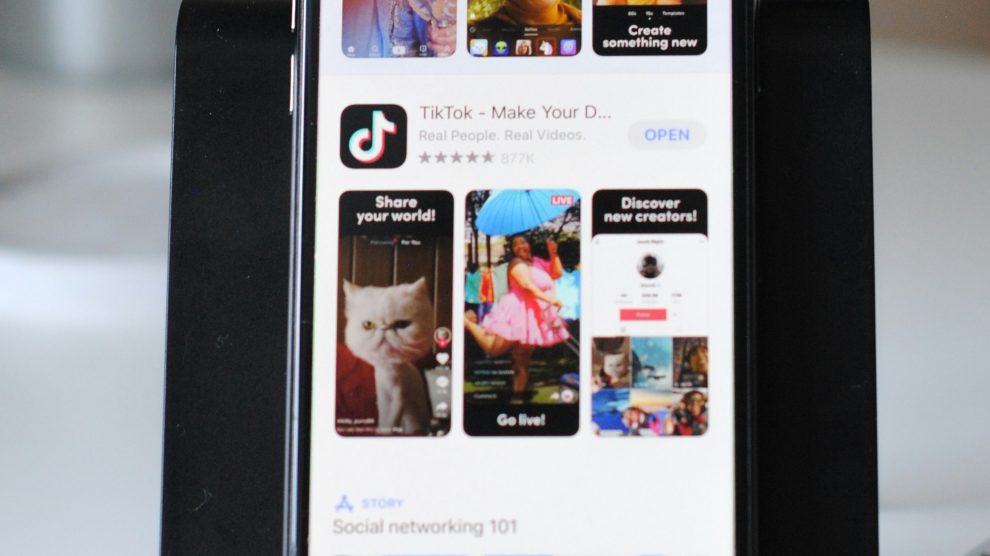EU politicians shouldn’t try to turn the DSA into a tool for banning TikTok. That’s not what it’s for. Platform regulation needs clear, evidence-based policies, not hasty political decisions.
The EU is at it again. Brussels is trying to stretch the Digital Services Act (DSA) far beyond its intended purpose. Politicians want to use it to tackle every digital dilemma in sight, abandoning its stated goal of balanced regulation prioritising both safety and innovation and instead weaponising it as a ban machine.
This time, the attention is on TikTok.
- Romania dodges a bullet
- Rethinking the fight against disinformation in the Black Sea region
- Digitalisation in Kazakhstan’s agriculture sector can support global food security efforts
Following a request from Romania, the European Commission has used the DSA to press TikTok with fresh questions about its handling of election-related content, and even ordered the platform to preserve all data tied to Romania’s election. Meanwhile, the Commission has scheduled a December plenary to address disinformation on platforms like TikTok and X.
A Romanian court cancelled the results of the first round of the presidential election amid fears of Russian influence, where ultranationalist Călin Georgescu topped the polls following a TikTok campaign similar to influence operations run by the Kremlin in Ukraine and Moldova, according to declassified Romanian intelligence documents. His rivals have said Russian bots were responsible for the TikTok surge, though TikTok has called those reports inaccurate and misleading.
The EU flexed its DSA muscles, wielding enough power to order TikTok to freeze Romanian election data. Here we go again, with another round of debates about whether EU regulations like the DSA should be stretched to handle national threats.
What’s getting lost in all the noise? The DSA isn’t a geopolitical hammer. It’s a tool for addressing systemic issues like platform accountability, transparency, and user rights. Let’s not twist it into something it was never meant to be.
DSA is not a catch-all solution
While privacy laws like the GDPR have been used to scrutinise platforms like TikTok, some EU member states have pushed for broader, EU-wide action.
These debates often get tangled with the DSA, though it’s important to remember the DSA isn’t a catch-all solution. It’s an action-oriented regulation, not an omnipotent tool for every digital issue. Brussels must resist the urge to use the DSA for overregulation and mission creep on antitrust issues.
The DSA is not a magic wand for every issue tied to the internet. It’s built to address systems and processes, not single out specific platforms or actions. Twisting it into a tool for banning apps like TikTok, just because someone or some group is gaining traction there, risks turning it into a political weapon and undermining its real purpose. Users are not earning popularity on TikTok by chance. They have cracked the code of TikTok’s unique algorithm, which plays by entirely different rules than other social platforms.
In Romania’s case, the issue takes a twist. Declassified documents from Romanian security officials revealed Georgescu’s campaign was supercharged on TikTok, using coordinated accounts, recommendation algorithms, and paid promotions. Despite this, Georgescu claimed zero campaign spending.
It’s a huge breach of national election laws and the constitution, but let’s not forget: this could happen on any platform, including Facebook and X. In fact, researchers have found TikTok’s data collection practices are strikingly similar to those of US tech giants like Facebook and Google.
Some policymakers and advocacy groups may try to wield the DSA as a tool against specific platforms, mixing regulation with political rivalry or competition over who controls innovation. We’ve seen this play out across the EU in many sectors, such as the ongoing tariff battle over Chinese electric cars and the security and privacy implications of their technology. While those concerns are valid, making blunt decisions can often make it harder to reach our broader strategic goals.
No hasty political decisions
The DSA is a finely tuned framework meant to empower users and regulators alike, while keeping state power in check. Turning it into a banning tool would tip the scales, transforming it from a safeguard for users into a political weapon.
Another issue is the risk of regulatory actions being mistaken for bans, even though the DSA only includes regulatory measures. For instance, a platform failing to curb systemic risks like hate speech or disinformation or neglecting transparency requirements could face restrictions.
But these are not bans born from political disagreements; they are consequences of legal non-compliance.
EU politicians shouldn’t try to turn the DSA into a tool for banning TikTok. That’s not what it’s for. Platform regulation needs clear, evidence-based policies, not hasty political decisions. Digital ecosystems are too diverse globally for such a blunt approach. The DSA should focus on empowering users and institutions, not fueling geopolitical bans.
After all, giving too much power to regulators risks stifling the tech development and innovation the EU desperately needs.
At Emerging Europe, we use an integrated approach centred around market intelligence to help organisations understand trends and strategically position themselves for success.
Learn how our solutions can help you thrive in the region:
Company and Services Overview | Strategic Advantage.

